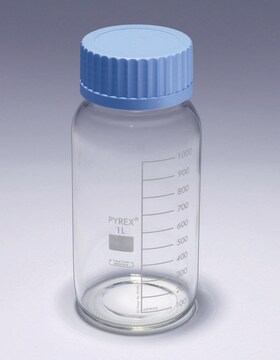P9155
Poly-ʟ-Lysine Hydrobromide
synthetic, mol wt 30,000-70,000, powder, γ-irradiated, suitable for cell culture, BioXtra
Synonyme(s) :
PDL HBr
About This Item
Produits recommandés
product name
Poly-L-lysine hydrobromide, mol wt 30,000-70,000, lyophilized powder, γ-irradiated, BioXtra, suitable for cell culture
Source biologique
synthetic (organic)
Niveau de qualité
Stérilité
γ-irradiated
Gamme de produits
BioXtra
Forme
lyophilized powder
Poids mol.
30,000-70,000
Conditionnement
pkg of 5 mg
Technique(s)
cell culture | mammalian: suitable
Couverture de surface
4 μg/cm2
Solubilité
H2O: soluble 50 mg/mL, clear, colorless
Conditions d'expédition
ambient
Température de stockage
−20°C
Chaîne SMILES
Cl.NCCCCC(N)C(O)=O
InChI
1S/C18H38N6O4/c19-10-4-1-7-13(22)16(25)23-14(8-2-5-11-20)17(26)24-15(18(27)28)9-3-6-12-21/h13-15H,1-12,19-22H2,(H,23,25)(H,24,26)(H,27,28)/t13-,14-,15-/m0/s1
Clé InChI
WBSCNDJQPKSPII-KKUMJFAQSA-N
Vous recherchez des produits similaires ? Visite Guide de comparaison des produits
Description générale
Application
Poly-L-lysine hydrobromide has been used to adhere the dissociated cells of cortical tissues into the culture plates. It has also been used to treat slides, to fix samples on it for immunohistochemical analysis.
Actions biochimiques/physiologiques
Composants
Attention
Remarque sur l'analyse
Autres remarques
Code de la classe de stockage
11 - Combustible Solids
Classe de danger pour l'eau (WGK)
WGK 3
Point d'éclair (°F)
Not applicable
Point d'éclair (°C)
Not applicable
Équipement de protection individuelle
Eyeshields, Gloves, type N95 (US)
Certificats d'analyse (COA)
Recherchez un Certificats d'analyse (COA) en saisissant le numéro de lot du produit. Les numéros de lot figurent sur l'étiquette du produit après les mots "Lot" ou "Batch".
Déjà en possession de ce produit ?
Retrouvez la documentation relative aux produits que vous avez récemment achetés dans la Bibliothèque de documents.
Les clients ont également consulté
Articles
Poly-Lysine enhances electrostatic interaction between negatively-charged ions of the cell membrane and positively-charged surface ions of attachment factors on the culture surface. When adsorbed to the culture surface, it increases the number of positively-charged sites available for cell binding.
Cancer stem cell media, spheroid plates and cancer stem cell markers to culture and characterize CSC populations.
Extracellular matrix proteins such as laminin, collagen, and fibronectin can be used as cell attachment substrates in cell culture.
Protocoles
Adhere cells to solid substrates using poly-lysine, which enhances electrostatic interaction between negatively charged ions of the cell membrane and the culture surface.
Notre équipe de scientifiques dispose d'une expérience dans tous les secteurs de la recherche, notamment en sciences de la vie, science des matériaux, synthèse chimique, chromatographie, analyse et dans de nombreux autres domaines..
Contacter notre Service technique





